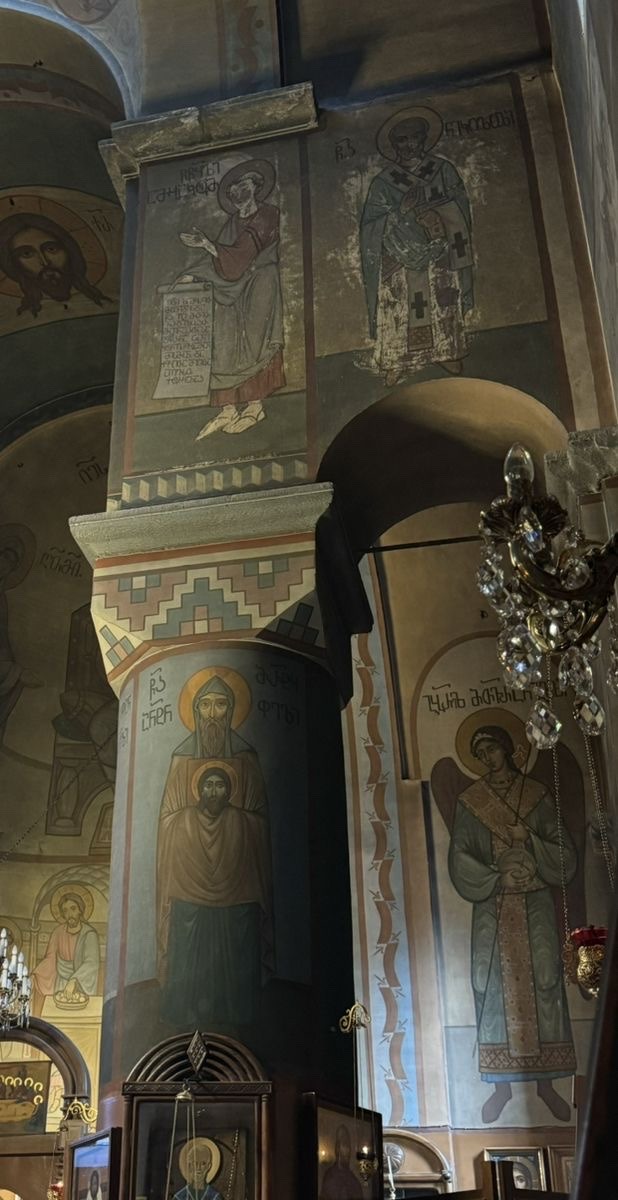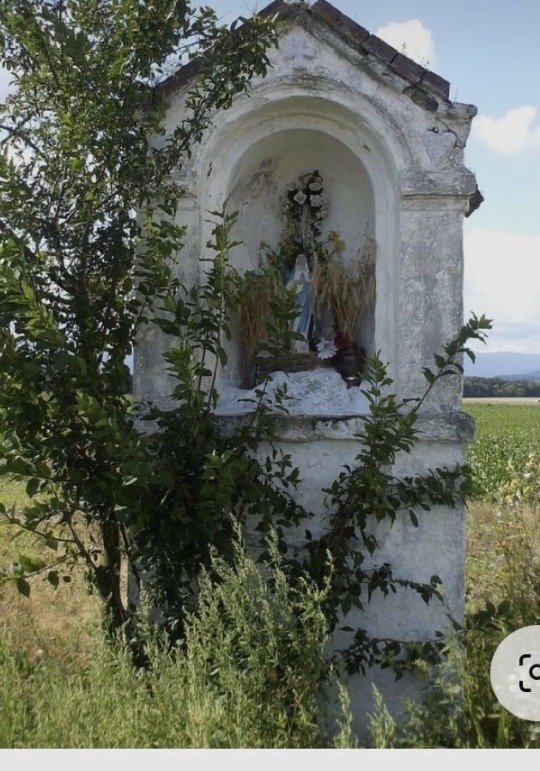Text
[10] Create in me a pure heart, O God, and renew a steadfast spirit within me.
Psalms 51:10 NIV
56 notes
·
View notes
Text
The prophet Ezekiel has a series of visions in which God shows him what's coming, including the promise that God will "restore the fortunes of Sodom and her daughters" and they will "return to what they were before" (chap. 16)
Restore the fortunes of Sodom? The story isn't over for Sodom and Gomorrah? What appeared to be a final, forever, smoldering, smoking verdict regarding their destiny... wasn't?
What appeared to be over, isn't. Ezekiel says that where there was destruction, there will be restoration.
[...] there's still hope?
And if there's still hope for Sodom and Gomorrah, what does that say about all of the other Sodoms and Gomorrahs?
According to the prophets, God crushes, refines, tests, corrects, chastens, and rebukes-- but always with a purpose [...] there's always the assurance that it won't be this way forever.
God, Salvation, and Sodom and Gomorrah as discussed in Love Wins: A Book About Heaven, Hell, and the Fate of Every Person Who Ever Lived
53 notes
·
View notes
Photo

The Vision of Saint Hubert. Franz von Stuck, 1890
7K notes
·
View notes
Text






I will give peace in the land, and you shall lie down, and none shall make you afraid.
Leviticus 26:6
1K notes
·
View notes
Text
living beyond the mechanism of hate
Someone has planted in the minds of christians the idea that "differentiating from the world" boils down to things like not drinking, not smoking, not swearing, or refraining from sex outside of marriage. They've made it seem as if God became man to create a huge group of Scouts. But to "differentiate from the world" is also, and above all, to break the dominant logic of hate, a logic that has always been with us.
James Alison, commenting on the story of the blind man and the Pharisees in the Gospel, writes that "Christian subversion goes far beyond a mere inversion, since a mere inversion keeps the same mechanism alive, even when the protagonists change positions."
This means we must act differently. Just as the Sun shines for everyone, so too must mercy be non-selective. We cannot fall into the trap of hating those who persecute us (and every Christian can reflect on who persecutes them), or we will only be repeating the mechanism of hatred that Christ broke. Changing the names, yes, but the hatred directed at the Pharisee is no less hatred.
In all of Christ’s reproaches, there is the expression of the living and merciful God. Let us be mirrors of that Love in the world, loving "everyone, everyone, everyone," as Pope Francis asks.
42 notes
·
View notes
Text
“The Gospel takes away our right forever, to discriminate between the deserving and the undeserving poor.”
— Dorothy Day
2K notes
·
View notes
Text
The road to Heaven is paved with works of mercy, and these works are just as much for our well-being as they are for others. In serving the poor, we find Christ our Life. In serving the vulnerable, we evade death and find true and lasting life.
Sr. Theresa Aletheia Noble, "Remember Your Death Lenten devotional"
36 notes
·
View notes
Text
Can there really only ever be what there has always been? Can there not be something unexpected, something unimaginable, something new? If there really is a God, is he not able to create a new dimension of human existence, a new dimension of reality altogether? Is not creation actually waiting for this last and highest "evolutionary leap"*, for the union of the finite with the infinite, for the union of man and God, for the conquest of death?
Pope Benedict XVI (Jesus of Nazareth: From the Entrance into Jerusalem to the Resurrection, page 247), trans. Philip Whitmore. *"to draw an analogy, albeit one that is easily misunderstood" (p. 244)
Behold, I make all things new.
the Book of Revelation (21:5b)
6 notes
·
View notes
Text
“There’s a great Yiddish expression that says, “If I knew God, I’d be God.” In fact, I think that claiming that you “know God’s will” is an act of incredible hubris. Instead, what we say about God has much more to say about us than about God. There are, in fact, a whole range of different theologies within Judaism (you can find some of them in the terrific books “Finding God“ and “The God Upgrade,” both of which describe a whole range of differing, and sometimes even conflicting, theologies.) And while I can only speak personally here, to me, “God” isn’t really a noun at all — it’s a verb. Here’s why. The most common name that God gives Godself in the Torah is “YHVH,” a name that is sometimes thought to be so holy that no one was allowed to pronounce it. But that’s not exactly right — it’s not that “YHVH” was not allowed to be pronounced, it’s that it is literally unpronounceable, since it consists of four Hebrew vowels (yod, hay, vav and hay). By the way, that’s also why some people incorrectly call this name “Yahweh,” since (as Rabbi Lawrence Kushner once said), if you tried to pronounce a name that was all vowels, you’d risk serious respiratory injury. But even more importantly, the name YHVH is actually a conflation of all the tenses of the Hebrew verb “to be.” God’s name could be seen as “was-is-will be,” so God isn’t something you can’t capture or name — God is only something you can experience. And indeed, when Moses is at the burning bush, having just been told by God that he will be leading the Israelites out of Egypt, he says, “Suppose I go to the Israelites and say to them, ‘The God of your fathers has sent me to you,’ and they ask me, ‘What is his name?’ Then what shall I tell them?” God responds that God’s name is “Ehyeh asher ehyeh,” which is often translated as “I am what I am.” But it could also be translated as, “I am what I will be.” So God is whatever God will be — we simply have no idea. Indeed, for my own theology, I believe that God is found in the “becoming,” transforming “what will be” into “what is.””
— Rabbi Geoffrey A. Mitelman,
9K notes
·
View notes
Text
Hope has two beautiful daughters; their names are Anger and Courage. Anger at the way things are, and Courage to see that they do not remain as they are.
St. Augustine of Hippo
3K notes
·
View notes
Text
"He hath filled me with words of truth; that I may speak the same; And like the flow of waters flows truth from my mouth, and my lips show forth His fruit. And He has caused His knowledge to abound in me, because the mouth of the Lord is the true Word, and the door of His light."
- Odes of Solomon 12:1-3
1 note
·
View note
Text
The Sunlit Canon
A collection of sacred texts, drawn from the ancient traditions and reformed in the light of Christ’s teachings, without Pauline interference. These writings guide the spirit, shape the walk, and illuminate the path.
Pentateuch (Torah)
• Genesis
• Exodus
• Leviticus
• Numbers
• Deuteronomy
Historical Books
• Joshua
• Judges
• Ruth
• 1 & 2 Samuel
• 1 & 2 Kings
• 1 & 2 Chronicles
• Ezra & Nehemiah
• Tobit (Deuterocanonical)
• Judith (Deuterocanonical)
• Esther
• 1 & 2 Maccabees (Deuterocanonical)
Wisdom Literature
• Job
• Psalms
• Proverbs
• Ecclesiastes
• Song of Solomon
• Wisdom of Solomon (Deuterocanonical)
• Sirach (Ecclesiasticus) (Deuterocanonical)
• Odes of Solomon
• The Shepherd of Hermas
Major Prophets
• Isaiah
• Jeremiah
• Lamentations
• Baruch (Deuterocanonical)
• Ezekiel
• Daniel (including Susanna, and Bel and the Dragon)
Minor Prophets
• Hosea
• Joel
• Amos
• Obadiah
• Jonah
• Micah
• Nahum
• Habakkuk
• Zephaniah
• Haggai
• Zechariah
• Malachi
⸻
Gospels and New Testament Core
• Gospel of Matthew
• Gospel of Mark
• Gospel of Luke
• Gospel of John
• Gospel of Thomas
• Acts of the Apostles
• Acts of Andrew
• Acts of John
• Acts of Thomas
• Hebrews
• James
• 1 & 2 Peter
• 1, 2, & 3 John
• Jude
• 1 Clement
• 2 Clement
• Epistle of Barnabas
• Book of Nicodemus (Acts of Pilate)
• Revelation
⸻
Sunlit Paracanon
These texts aren't foundational, but still precious. Writings that illuminate the ancient faith, express the early saints’ devotion, and shape the character of the humble seeker.
Apostolic and Early Church Writings
• Infancy Gospel of James
• Gospel of the Infancy of Jesus Christ
• Apocalypse of Peter
• Apocalypse of Zephaniah
• Ascension of Isaiah
• Gospel of Mary Magdalene
• Martyrdom of Polycarp
• Martyrdom of Perpetua and Felicity
Apologies and Theology
• Tertullian – Apology
• St. Augustine – Confessions
• Gregory of Nyssa – On the Holy Trinity
Creeds and Ecclesiastical Rules
• Chalcedonian Definition
• Apostles’ Creed
• Nicene-Constantinopolitan Creed
• Rule of St. Benedict
• Rule of St. Augustine
• Apostolic Constitutions
Additional Writings
• Clementine Homilies
• Theophilus of Antioch – To Autolycus
• Life of Adam and Eve
“The light shines in the darkness, and the darkness has not overcome it.” —John 1:5
#sunlitism#canon building#early church#nonpauline christianity#spiritual reconstruction#the sunlit sanctuary of the radiant lamb#john
0 notes
Text
Christ taught us to live justly, compassionately, and humbly- and that is where I place my focus. Not just in what we believe but also how we act on those beliefs.
I hope for a church that's humble, one that's open to anyone who wishes to walk in the light of Christ, anyone who values the simplicity and clarity of His original message. To work towards this, I combed through old writings that resonate with my vision of Christ's teachings, writings that brought us closer to His spirit and the original teachings of His disciples.
And so, Sunlitism is not bound by tradition for tradition's sake, but is a path for those like me who wish to live authentically and align their actions with their faith.
- Vincent.
“My heart was cloven and its flower appeared; and grace sprang up in it, and it brought forth fruit to the Lord. For the Most High clave my heart by His Holy Spirit and searched my affection towards Him, and filled me with His love. And His opening of me became my salvation; and I ran in His way in His peace, even in the way of truth.” Odes of Solomon 11:1–3
#sunlitism#christianity#religion#a letter from the pulpit#odes of solomon#the sunlit sanctuary of the radiant lamb#nonpauline christianity
2 notes
·
View notes
Text
"For as a round stone cannot become square unless portions be cut off and cast away, so also those who are rich in this world cannot be useful to the Lord unless their riches be cut down."
- The Shepherd of Hermas, 3rd Vision, Ch. 6
4 notes
·
View notes
Text
10 Reasons Paul of Tarsus is a False Apostle
To understand what happened to Paul’s writings and his message we need to know the story of how Yeshua’s sayings and life came to the knowledge of the multitudes. Yeshua died in 32 A.D. The first writings with annotations of what he said only appeared from 60 AD (+ 28 years later) with the Gospel of Mark, and later in the 70’s appeared the Gospels of Luke and Matthew. The last gospel to appear…

View On WordPress
4 notes
·
View notes

